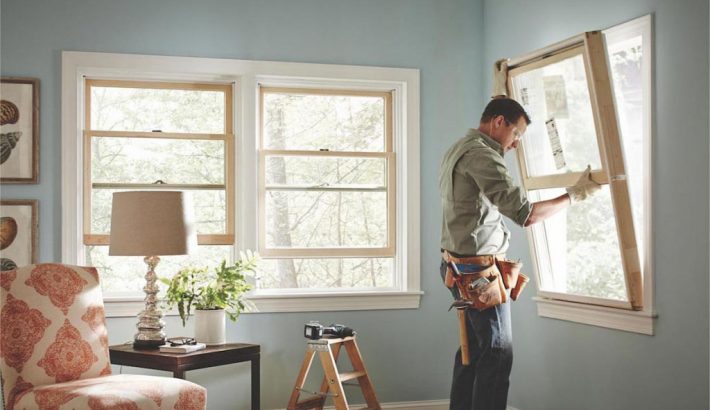Do you want to Invest in replacement windows in Vancouver? Window replacement is an essential home improvement task that enhances a home’s aesthetic appeal, energy efficiency, and overall value.
Replacing windows can significantly impact a home’s comfort and cost-effectiveness, whether due to age, damage, or energy-saving upgrades. We will explore various aspects of choosing and working with a window replacement contractor, different windows available, and considerations for a successful replacement project.
Selecting the Right Windows for Your Home
Choosing the right type of windows for your home involves understanding the different materials and designs available in the market. Common materials used for window frames include wood, vinyl, aluminum, and fiberglass, each offering unique benefits and challenges regarding maintenance, durability, and insulation properties.
Wood frames are valued for their classic look and excellent insulative qualities but require more maintenance. Vinyl windows provide good insulation and are low maintenance but might not be as durable as other materials.
Aluminium windows are durable and resist corrosion but are poor insulators. Fiberglass windows, while often more costly, offer superior durability and insulation. Homeowners should weigh these options considering their climate, the architectural style of their home, and their budget.

Choosing a Window Replacement Contractor
When selecting a window replacement contractor, several factors should be considered to ensure a smooth and successful installation. It is crucial to select a contractor with a solid reputation and a proven track record of quality workmanship.
Homeowners should seek multiple quotes to compare pricing and services offered. Checking online reviews, requesting references, and verifying the contractor’s licensing and insurance are essential in the selection process. Additionally, understanding the warranty offered on materials and labor can save considerable expense and hassle in the future.
Installation Process and What to Expect
The installation of new windows can vary greatly depending on the type of windows and the home’s construction. Generally, the process begins with removing old windows, which must be done carefully to avoid damage to the building’s structure.
The new windows must then be accurately fitted and sealed to ensure they perform effectively. Homeowners should discuss the installation process with their contractor, including the timeline and any preparation that needs to be done beforehand. It’s also important for the contractor to explain how they handle potential issues such as structural damage or unexpected adjustments during installation.
Energy Efficiency and Cost Savings
Energy-efficient windows are an important consideration for reducing heating and cooling costs in a home. Modern windows have double or triple glazing; inert gas fills between panes, and low-E coatings that reflect infrared light.
These technologies help keep heat inside during the winter and outside during the summer, thus reducing the workload on heating and ventilation systems. Although the initial investment in energy-efficient windows can be higher, the long-term savings on energy bills can be significant, making them a worthwhile consideration for any replacement project.

Maintaining Your New Windows
Proper maintenance extends the life of new windows and ensures they continue to function effectively. Maintenance requirements can vary by material. For instance, wood frames may need to be repainted or stained periodically, while vinyl and fibreglass require less upkeep.
General maintenance tips for all windows include regularly cleaning the glass and frame, checking for drafts, and ensuring the sealing remains intact. Additionally, it is advisable to regularly check the hardware and moving parts to ensure everything is in working order.
Environmental Impact and Sustainability in Window Replacement
The environmental impact of window replacement is an important consideration for many homeowners today. Choosing sustainable materials and window designs can significantly reduce a home’s carbon footprint.
When selecting windows, it’s crucial to consider the materials’ lifecycle. For example, wood is a renewable resource and can be more environmentally friendly when sourced from sustainably managed forests. On the other hand, while not biodegradable, vinyl offers long-lasting performance, which means fewer frequent replacements.
Moreover, manufacturing and disposing of old windows also affects the environment. Homeowners should inquire about recycling programs for old windows and look for contractors who practice responsible disposal methods.
Advanced window technologies enhance a home’s energy efficiency and contribute to broader environmental conservation efforts by reducing the need for excessive heating and cooling. Thus, by making informed choices about materials and disposal methods, homeowners can positively impact the environment while upgrading their homes.

Replacing old windows can provide numerous benefits, including improved home comfort, reduced energy bills, and increased property value. Homeowners can ensure that their window replacement project succeeds by understanding the different types of windows available, selecting a competent contractor, and knowing what to expect from the installation process.
Regular maintenance will keep new windows in top condition, maximizing the return on this significant home improvement investment. With thoughtful planning and execution, window replacement can be smooth and rewarding.

